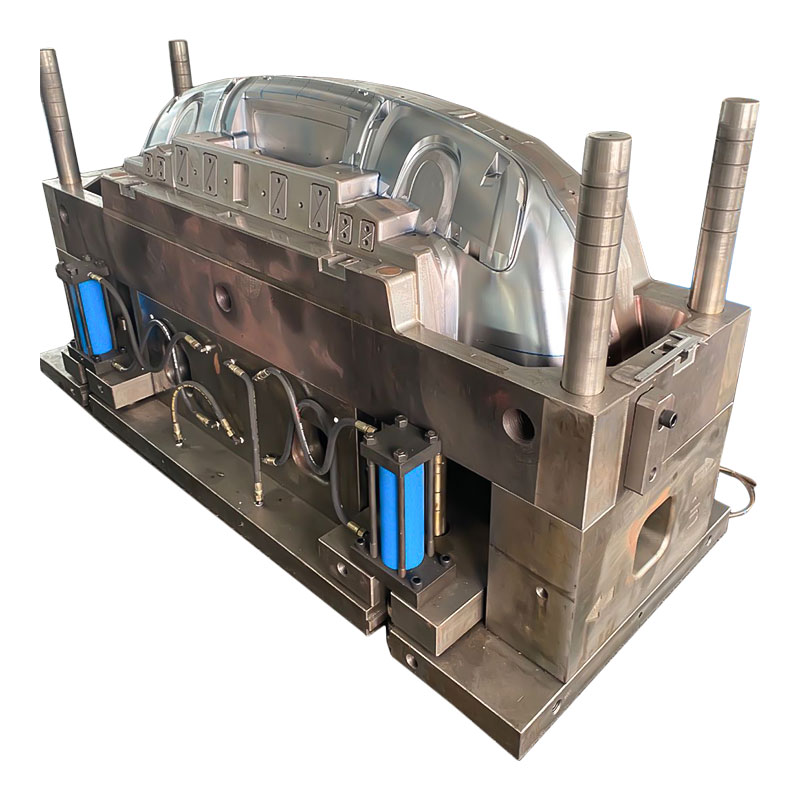Summary:How do you choose the best Precision Mould Factory? Here are a few tips: Requirements, Cost, Resin material, and Process. A good Precision Mould Factory will have a clear process flow that fits your needs. After reading this article, you will know ho......
How do you choose the best Precision Mould Factory? Here are a few tips: Requirements, Cost, Resin material, and Process. A good Precision Mould Factory will have a clear process flow that fits your needs. After reading this article, you will know how to find the best Precision Mould Factory for your application. And remember that this article will only cover the basics - you will need to discuss your particular requirements and your budget before making a final decision.
Requirements
There are several requirements for a precision mould factory. The tools used for the production of precision moulds must be highly sophisticated, such as CNC machine tools, EDM machines, wire-cutting machines, and CNC profiling milling equipment. The equipment should also be equipped with high-precision three-coordinate measuring instruments. In addition, it must have computer design software and related tools for producing high-precision plastic moulds. Other requirements include the quality of tools and services, as well as the efficiency of the mold-making process.
The number of cavities in the mould should be carefully determined. It should be understood that mould cavities may have many different numbers, and that the thickness of the support plate, bottom plate, and cavity walls should be appropriate. A thicker mold structure prevents violent elastic deformation. Alternatively, a smaller cavity number and shorter runner allow a higher level of finish. Similarly, the material used for precision moulds should be high-grade alloy steel or a heat-treated steel. The runner and bottom plate should be made of material with high hardness, excellent wear resistance, and corrosion-resistant properties.
Cost
Depending on the complexity of the product, a precision mould factory's cost can range from $45,000 to several million dollars. The actual price of a mold can be as high as $4 million, but the ROI can reach hundreds of times that amount! Here are some factors to keep in mind. The first factor is the cost of material. Steel and aluminum are both very expensive materials. The more complicated the product, the higher the cost of mould materials.
Second, the cost of material is one of the most important factors. The final mold cost is typically two to three times the material costs. The mold itself consists of many metal pieces, so material costs are the cost of the steel, EDM electrode, and eject pins. Different materials are priced differently, so choose the best option for your needs. Also, keep in mind your budget constraints and the level of quality you need.
Resin material
When choosing plastic materials for a precision mould factory, it can be daunting. However, choosing the correct material can be broken down into several simple steps. First, you need to decide on the material family and grade. Various resins have different properties and each has different applications. Listed below are three main resin families: amorphous, semicrystalline, and engineering-grade resins. Each resin has a different processing cost, but it offers unique properties.
The material's characteristics play a key role in determining the final shape and performance. The type of resin to use will depend on the performance conditions you need to achieve. A common choice for this purpose is polystyrene, which is translucent and porous. It offers high levels of durability and resistance to impact and provides excellent thermal insulation. Other types of resins, like polyetheretherketone, offer excellent weatherability and high impact resistance.
Process
The process of precision mould factory starts with pre-assessment. The pre-assessment includes a careful assessment of the product structure and function. The mould design engineer has to differentiate between non-functional and functional products and make modifications only after customer consent is received. For example, air-tight products do not require complex parting surfaces or moulds. The process of mould manufacturing is therefore highly complicated. It requires extensive knowledge of the product, mould flow analysis, and a high degree of precision.
A precision product may have reduced wall thickness or increased forming length. For instance, PC products can be molded with 177 mpa injection pressure in an ordinary machine, while 392 mpa for a precision machine. In addition, the production process of a precision product can be repeated with a machine that is three times longer than the product. The process of precision mould factory is different from the domestic one. Moreover, it has to meet the strict specifications of the product.
